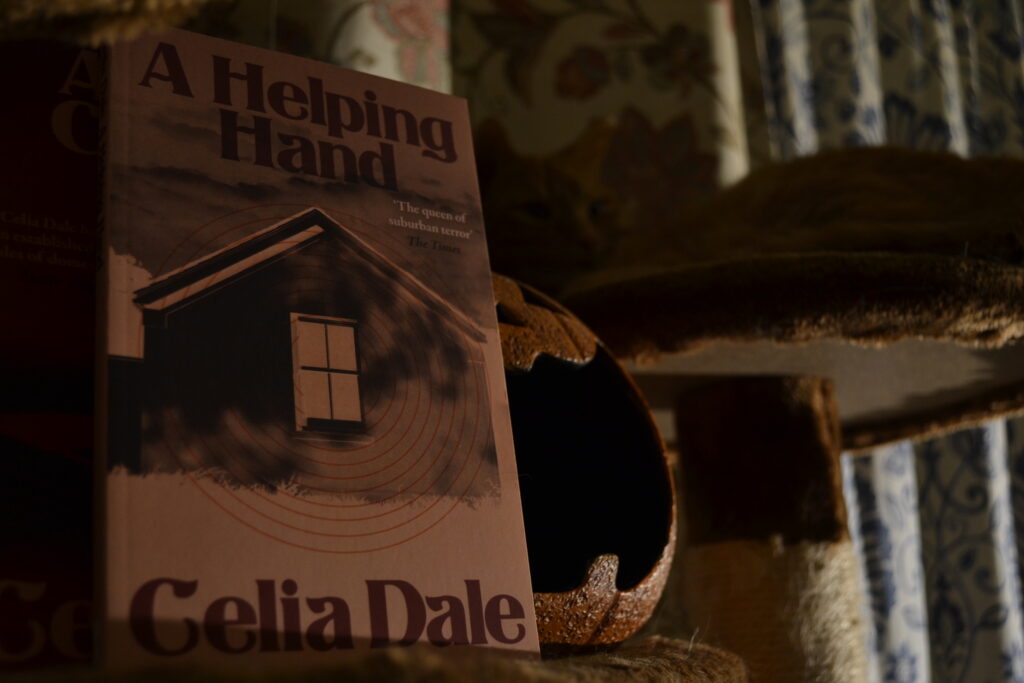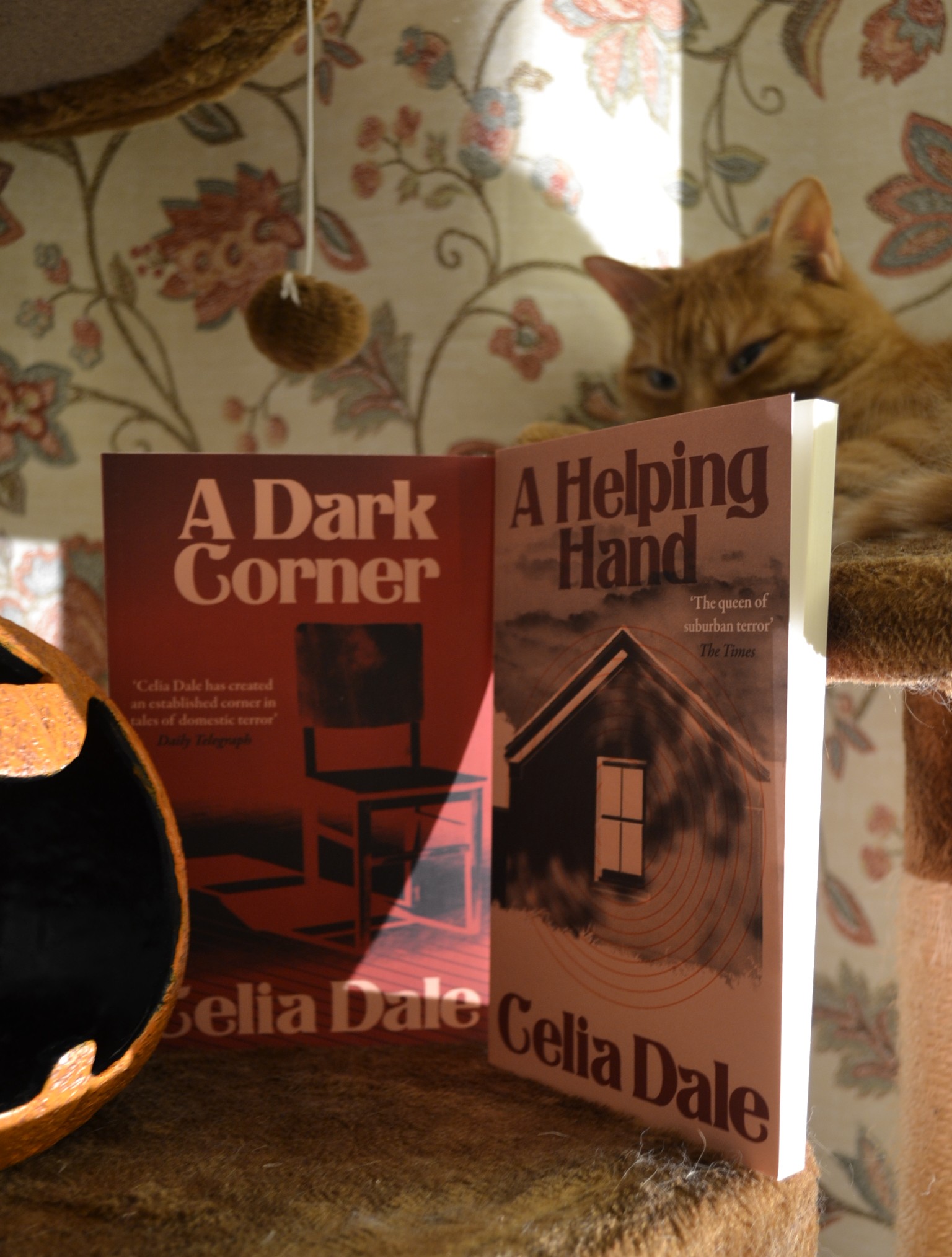Conversations at the Bookstore
Though I’m very introverted in general, I love our weekly outings to our local independent bookstore. We get to socialize with the staff that have become our friends, talking about books, and about life in our small town and its love of festivals and the arts. Last week we were talking about bikes and about biking around our neighbourhood which led to talking about our neighbour’s display of huge skeletons (which I mentioned in my review last week). And then we all asked each other the critical question.
Where would you store something like that?
And then I both feel joy that we’re all absolutely enjoying this ridiculously wonderful piece of décor, and I feel old that the only thing stopping me from procuring one for myself is where to put it. Oh, and the cost…but it feels like storage is the real problem here, somehow.
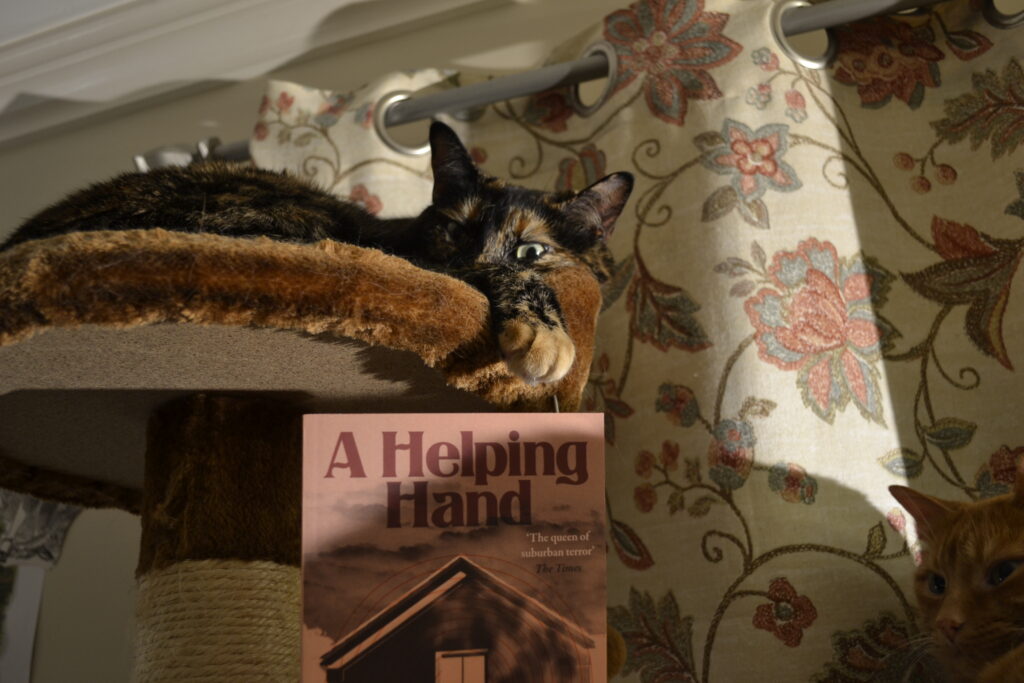
A Note on the Editions
If you’ve never heard of Valancourt Books, I cannot recommend them highly enough. They specialize in horror that’s off the beaten track and classics that have been forgotten by time, and I’ve enjoyed so much of their catalogue. And if you are a fan of Grady Hendrix’s Paperbacks From Hell, Valancourt has actually been reprinting them — and the supplementary books make for a heightened reading experience.
I came across Celia Dale’s books while browsing their site for titles from Hendrix’s book and I am so glad that I took a chance on them. Both A Helping Hand and A Dark Corner are well under two hundred pages, but each of them packs a disturbing punch and were well ahead of their time.
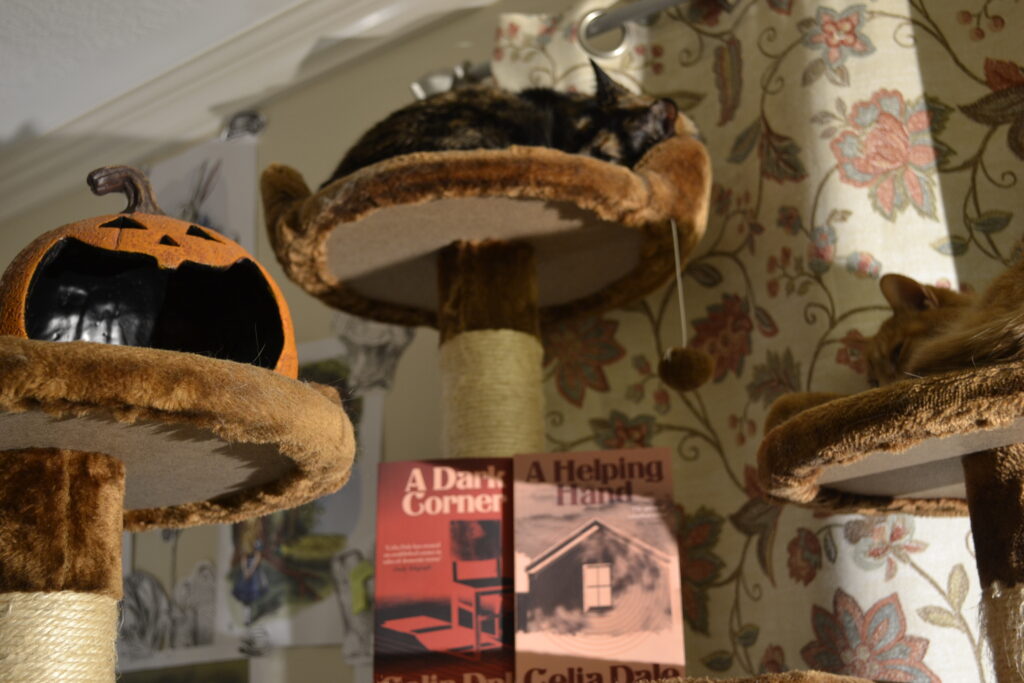
Domestic Horror
Domestic horror is a rather broad category and can encompass many different works and themes. The main characteristic is that the setting is domestic, often contained within a single family’s residence, be that a house (more commonly) or an apartment (more modernly). Some lean closer to literary fiction, as was the case with Marlen Haushofer’s Killing Stella which I reviewed for Halloween in August. Dale’s writing leans more towards genre. The goal is definitely to give the reader a spooky and compelling yarn so there’s a focus on pacing over detail and on plot rather than broader meaning or statement. But that isn’t to say that there isn’t a statement here.
In fact, both books share a common theme of unlikely perpetrators and violence that goes undetected due to prejudice, false assumptions, or just willful ignorance.
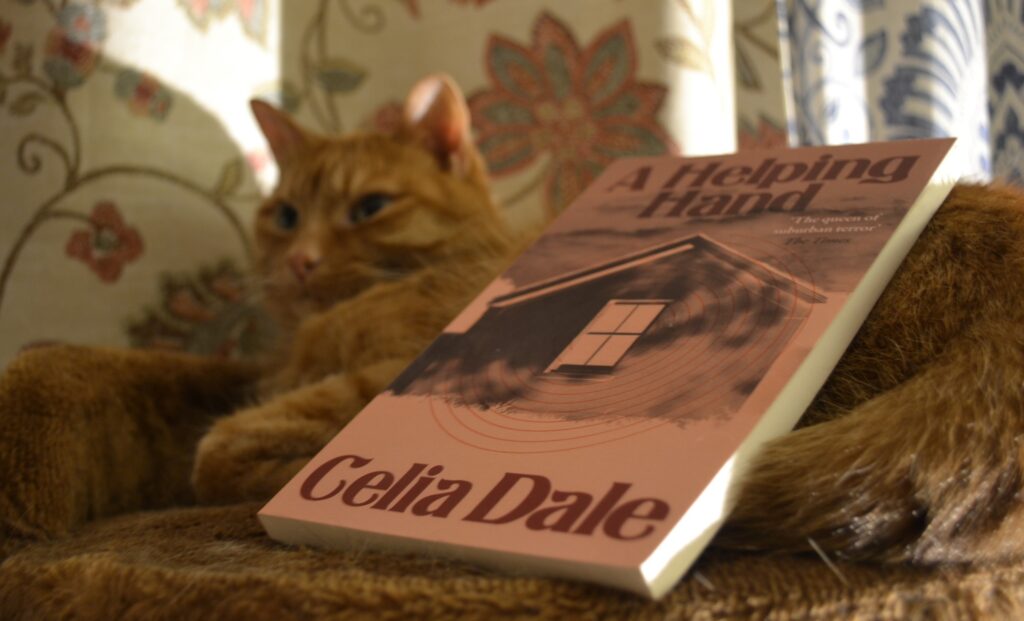
A Helping Hand
A Helping Hand is definitely the stronger of the two short novels, and it tells the story of Mrs Fingal an older woman who goes to live with a couple she met on holiday, Josh and Maisie Evans. While the couple is supposed to be experienced in caregiving, it rapidly becomes obvious that they aren’t who they seem and their goals are nefarious, to put it mildly. As the narrative unfolds and the slow, delightfully agonizing plot takes shape, the reader is left watching a crime coming together in slow motion.
As a warning there is detailed elder abuse and gaslighting — so if you are sensitive to that content, this may not be the book for you. It is definitely very disturbing and not an easy read.
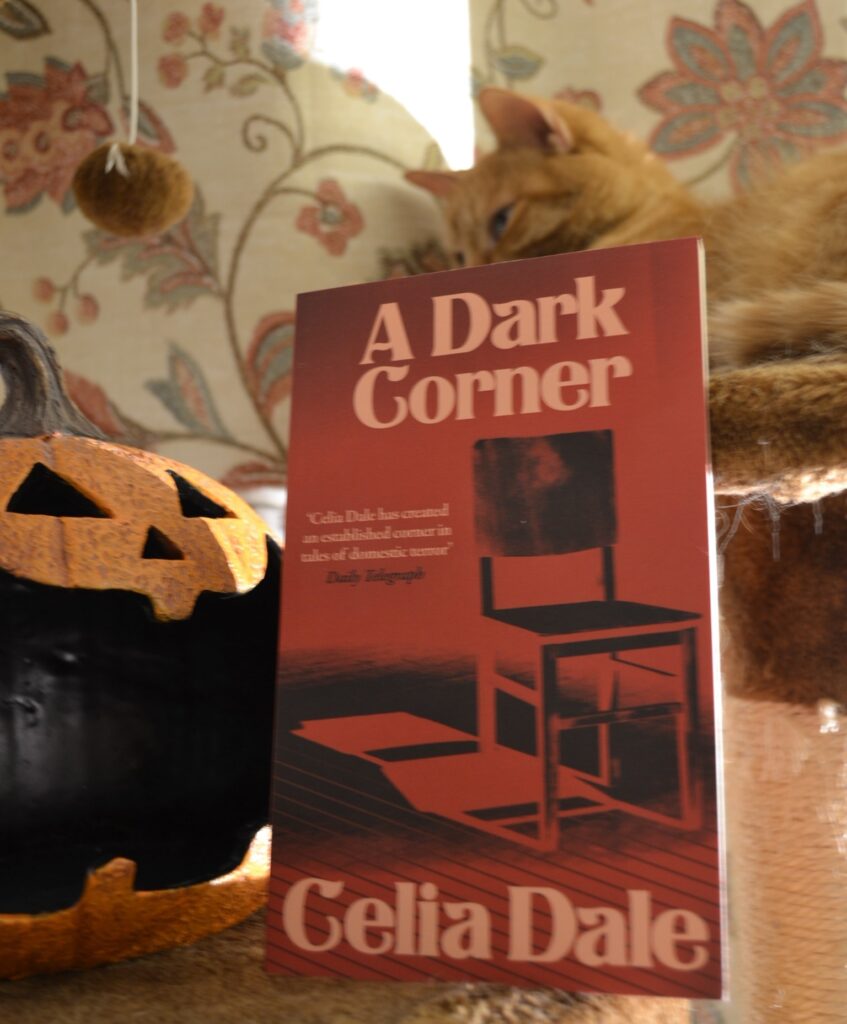
A Dark Corner
In A Dark Corner, Dale tackles the rather classic plot of an older couple taking on a lodger. Mr and Mrs Didcot on the surface are a typical, middle-class couple and, when they take in Errol Winston, they actively pat themselves on the back because Winston is Black at a time when tenancy was often refused on the basis of race.
But as the narrative goes on, it becomes clear that one of the Didcots is not as bland and harmless as he appears, as he begins to spout ideas on race and violence and women that Winston recognizes as both abhorrent and dangerous. But before Winston can extricate himself from the situation he becomes unwillingly entangled in a crime and wanting to protect one half of the couple from the other.
A Dark Corner is the weaker narrative for a few reasons. For instance, I felt it wasn’t quite long enough to accomplish what it set out to do. It also has several incomplete conversations on racism — and specifically systemic racism — that disappear into the ether. The narrative has not aged very well, nor is it an example of own voices and that can get very disappointing and very grating in certain passages.
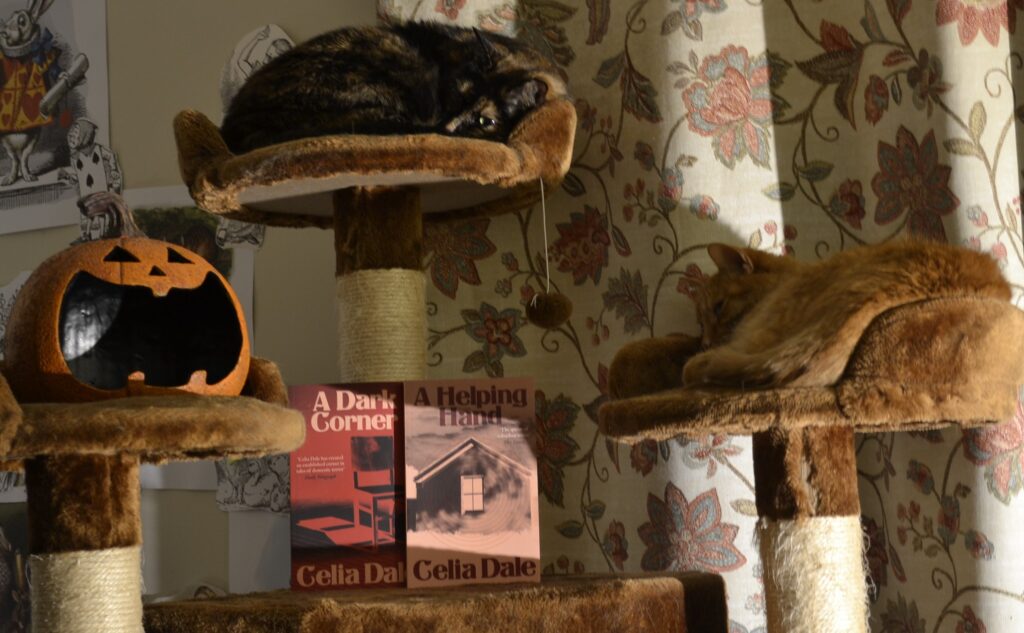
Early Sunsets
Also, a conversation we had in the midst of our errands, we were talking about biking in the lovely autumn weather. Someone mentioned it being great, except for the fact that it gets dark so early. And I thought to myself, does it get dark that early right now?
It does. We were actually going to take a hike after work hours but didn’t think we could fit it in before sunset.
Winter is suddenly starting to feel a whole lot closer.
